Sentence construction Grammar Worksheets for Ages 3-7
10 filtered results
-
From - To
Discover our engaging Sentence Construction Grammar Worksheets designed specifically for children aged 3-7! These fun, interactive worksheets help young learners develop essential writing skills by guiding them through the process of forming clear, complete sentences. With vibrant illustrations and age-appropriate exercises, kids will enjoy practicing their grammar while enhancing their vocabulary and creativity. Perfect for homeschoolers and classroom settings, our resources promote independent learning and build confidence in budding writers. Explore a variety of worksheets that cater to different learning levels, ensuring every child can strengthen their sentence construction skills in a playful and effective way!
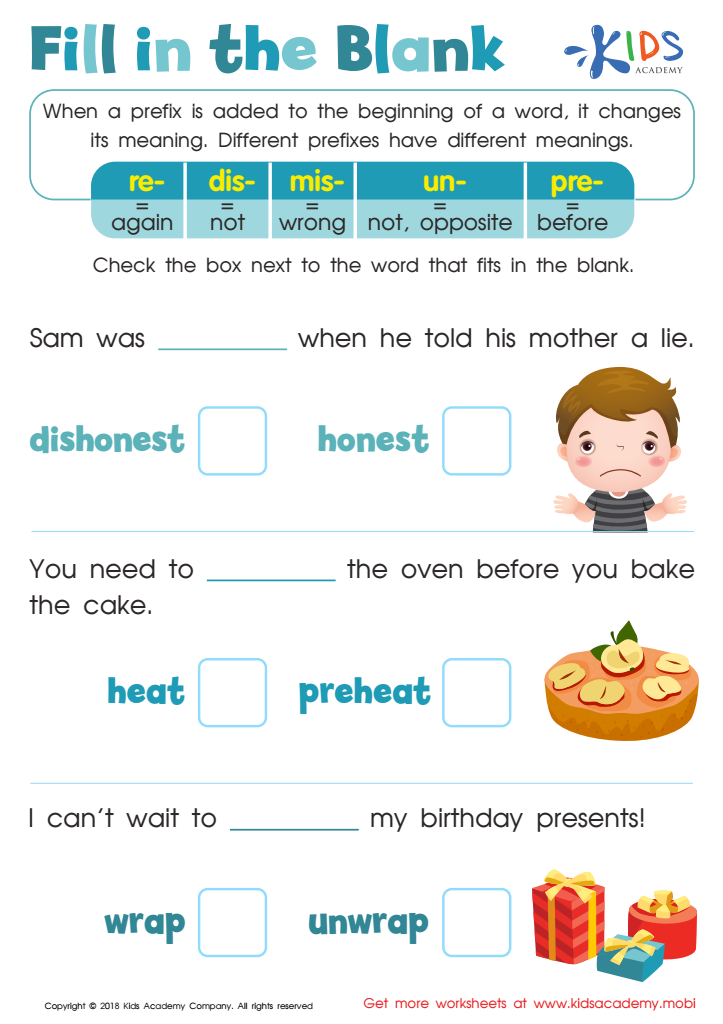

Reading: Fill in the Blank Worksheet
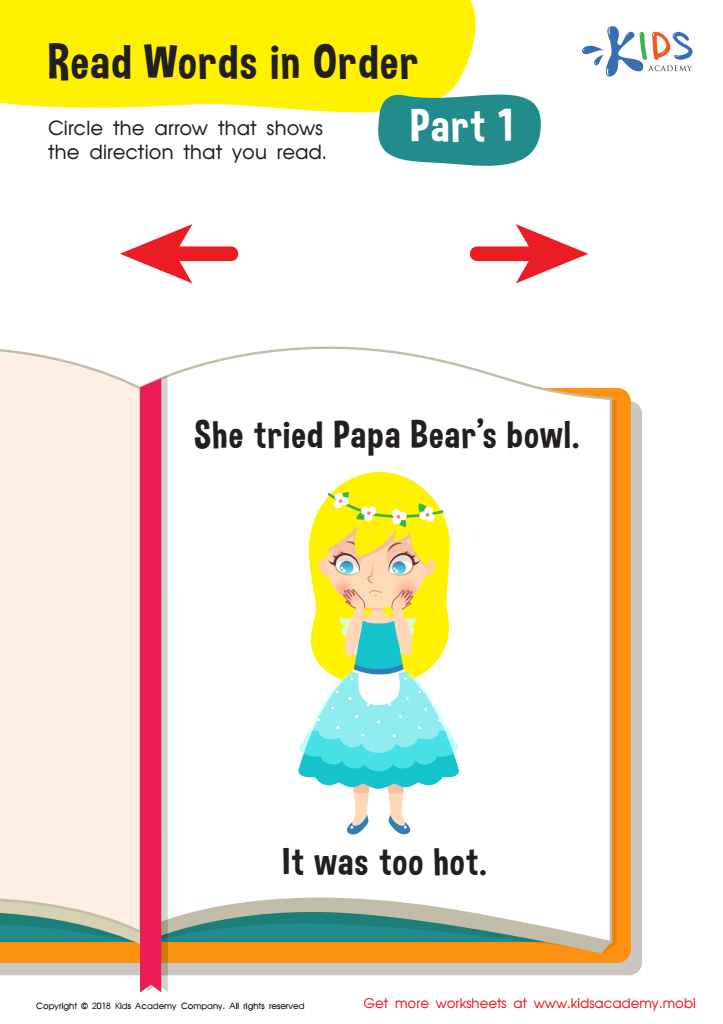

Read Words Order Part 1 Worksheet
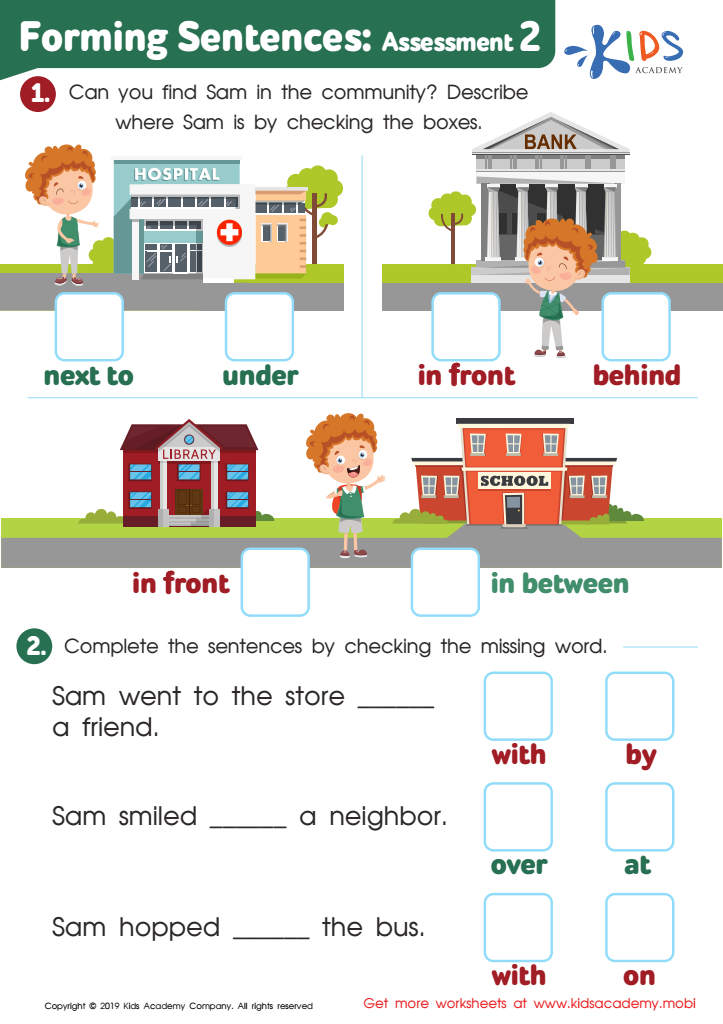

Forming Sentences: Assessment 2 Worksheet
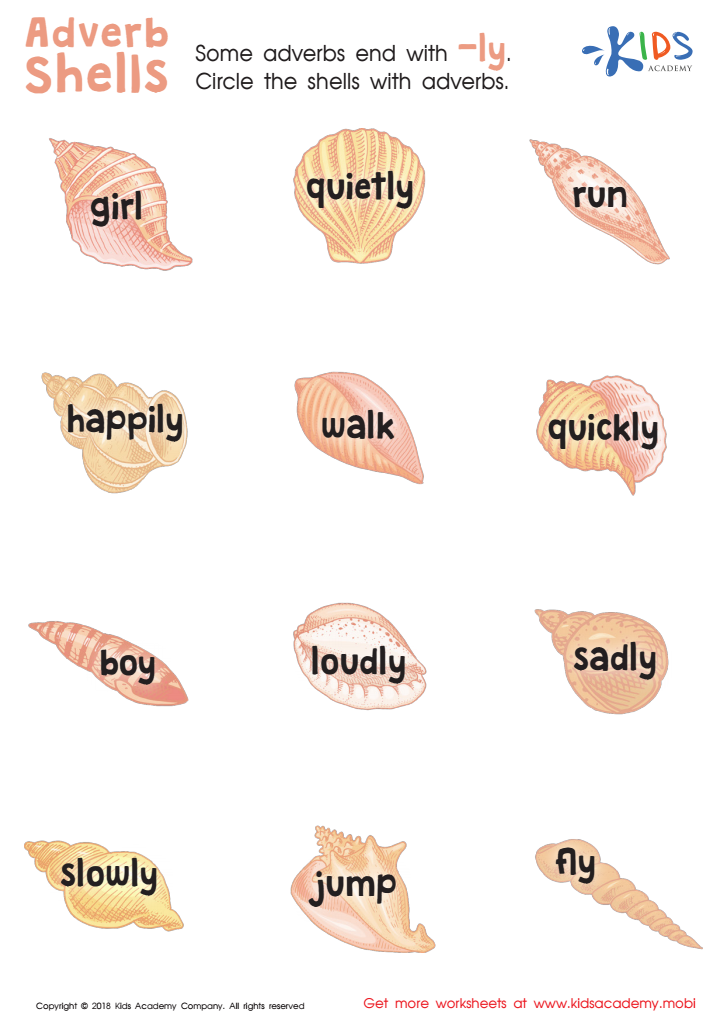

Adverb Shells Worksheet
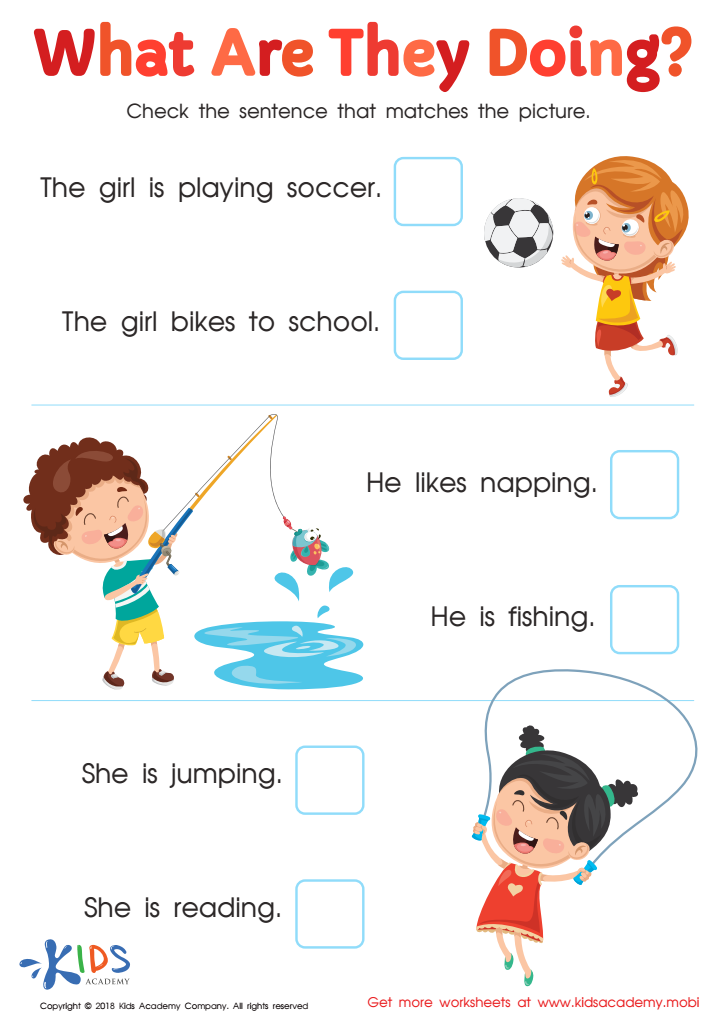

What Are They Doing? Worksheet
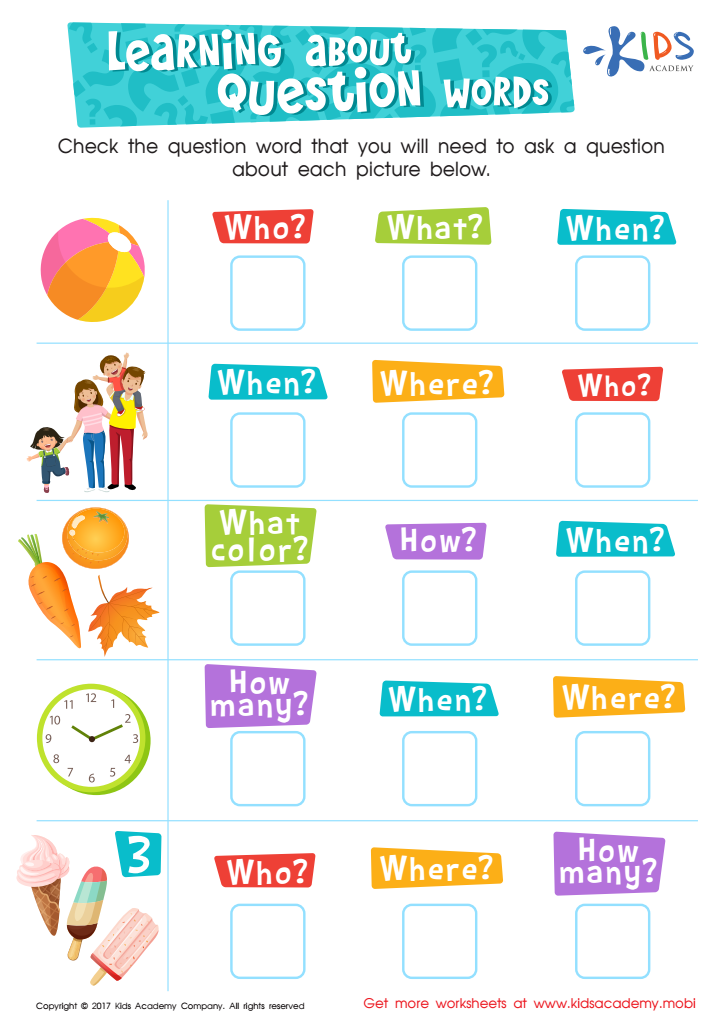

Learning about Question Words Worksheet
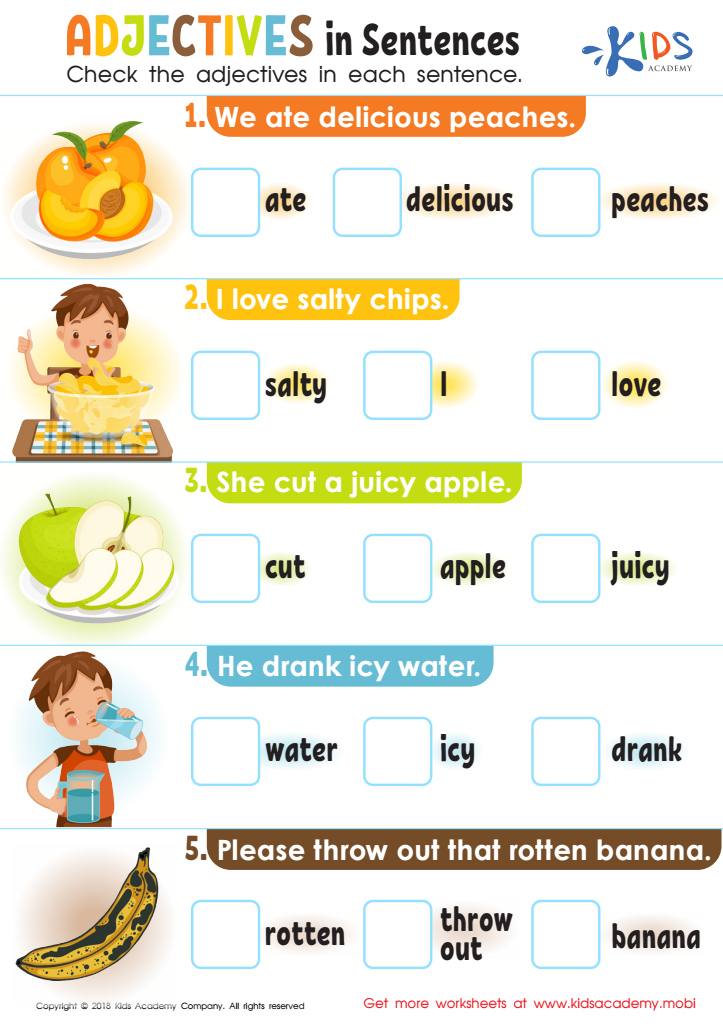

Adjectives in Sentences Worksheet
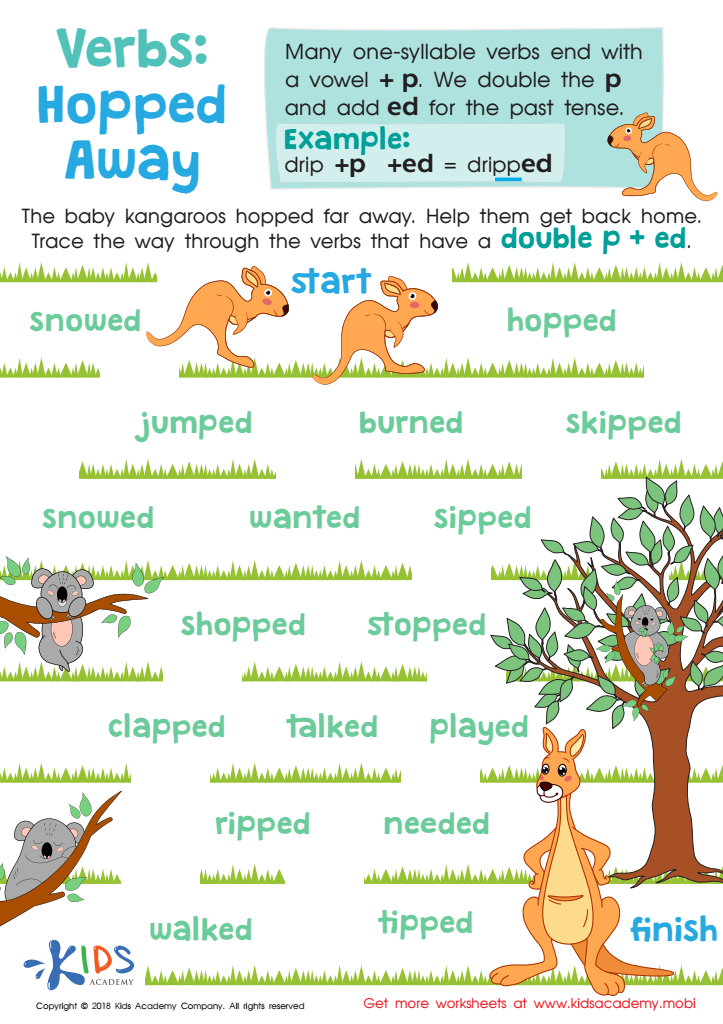

Verbs: Hopped Away Worksheet
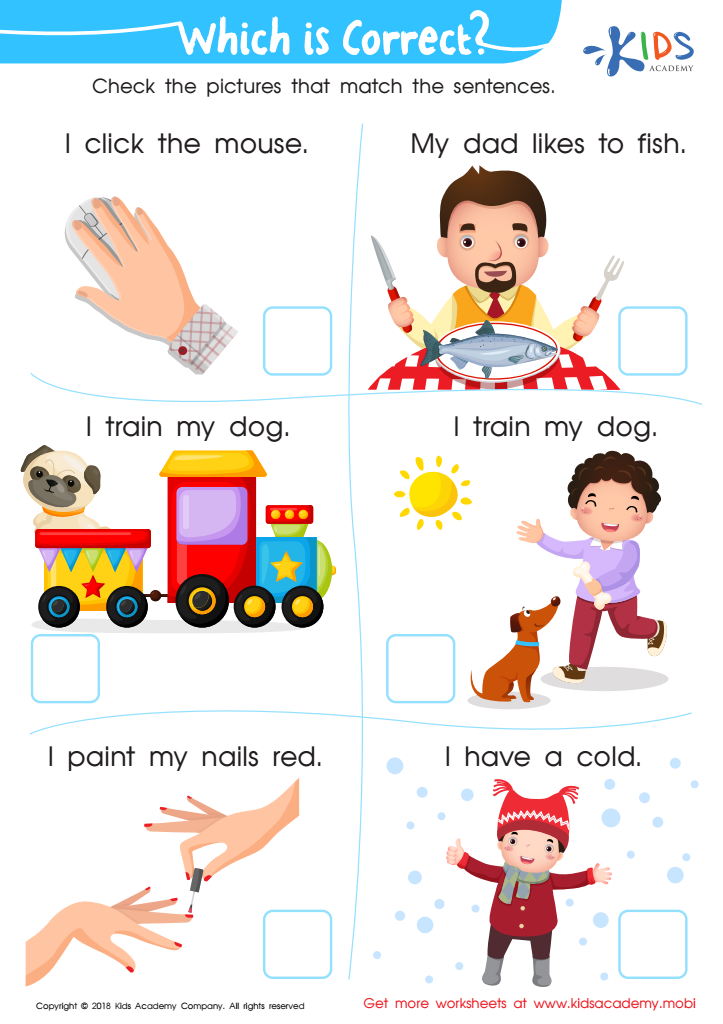

Which Is Correct? Worksheet
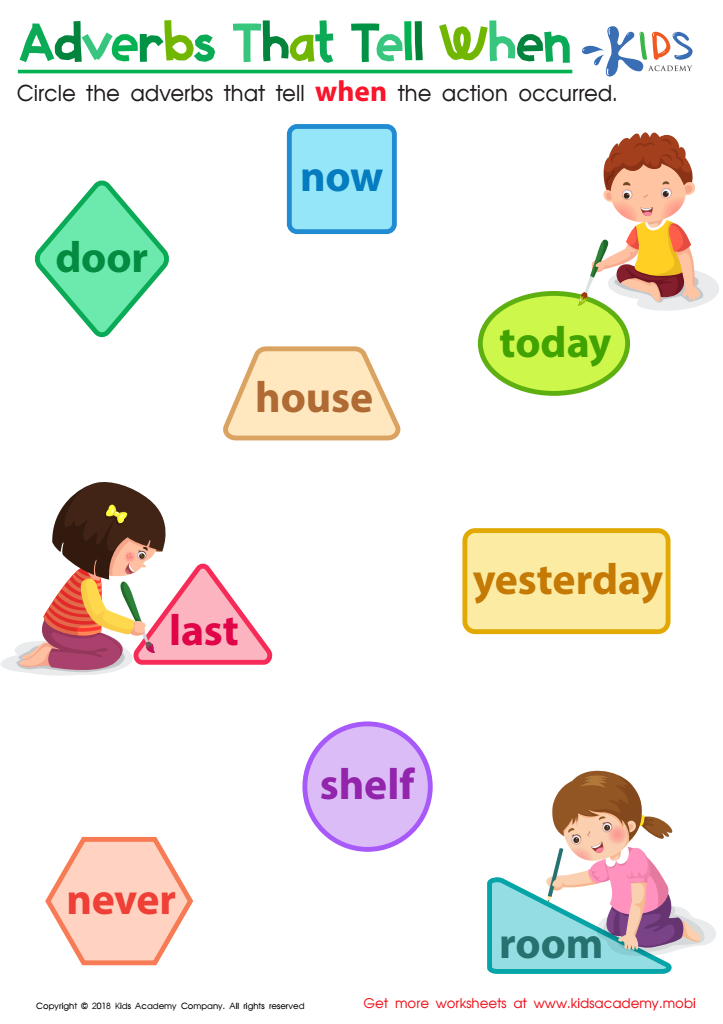

Adverbs That Tell us When Worksheet
Understanding sentence construction and grammar is essential for children aged 3-7 as it forms the foundation of their communication skills. During these formative years, children are naturally acquiring language, and guidance from parents and teachers can greatly enhance this process. Mastering sentence construction helps children express their thoughts clearly and effectively, fostering confidence in their ability to communicate with others.
Moreover, comprehension of grammar lays the groundwork for reading and writing. Children who grasp the basics of sentence structure are better equipped to make sense of stories and information, ultimately improving their literacy skills. As they learn to form complete sentences, they also develop critical thinking skills, allowing them to articulate ideas and engage in conversations thoughtfully.
Additionally, strong language skills are linked to academic success in later years. Building a solid foundation in grammar at a young age can lead to greater achievements in language arts and other subjects, fostering a lifelong appreciation for learning. Ultimately, by supporting children's understanding of sentence construction and grammar, parents and teachers are investing in their future by enhancing their communication abilities and academic potential.
 Assign to My Students
Assign to My Students




.jpg)










